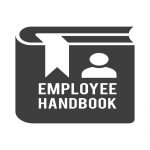The 501(h) election can be critical for nonprofits. Federal tax laws allow all charitable nonprofit organizations to engage in legislative lobbying activities, so long as they only amount to an “insubstantial” amount of their activities. However, neither Congress nor the IRS has defined “insubstantial,” which can make it difficult for a nonprofit to avoid running afoul of tax laws. This lack of clarity also may endanger the nonprofit’s 501(c)(3) tax-exempt status.
To avoid this uncertainty, nonprofits may opt to file IRS Form 5768 (Election/Revocation of Election by an Eligible Section 501(c)(3) Organizations to Make Expenditures to Influence Legislation). Filing this form, which is also known as “taking the 501(h) election,” allows the nonprofit to opt to have the IRS measure its lobbying activities by an objective expenditure test rather than by a subjective “insubstantial” amount of activities test. This option may allow the organization to safeguard its nonprofit status while adopting a more objective and friendlier standard to measure its lobbying activities.
Defining Lobbying
Nonprofits can engage in a great deal of political advocacy without lobbying. The Internal Revenue Code defines lobbying as:
- Communication
- To legislators (or to the public to contact legislators)
- Intended to influence specific legislation
Legislation is action by a legislative body, whether at the local, state, or federal level. The actions of courts and administrative or executive agencies do not count as legislation. Also, specific legislation is more than a broad policy issue, so nonprofits are free to comment or advocate on broader issues.
More specifically, under IRS rules, lobbying does not include:
- Making available the results of nonpartisan analysis, study, or research;
- Providing technical advice or assistance to a government body, or its committee or other subdivision, in response to a written request from the chair of that body (this is sort of a free pass to express a view about legislation to the relevant legislators directly);
- Self-defense communications with a governmental body regarding legislation that would affect your existence, your powers or duties, your tax-exempt status, or the deductibility of contributions to your group (note that fighting cuts in government funding for your cause is not self-defense);
- Discussing broad social issues without mentioning specific legislation;
- Communicating with a government official or employee, other than to influence legislation (note that many important decisions, such as how to enforce or implement a law, are made by government agencies, and since their decisions are not legislation, even direct communications to agency officials about these decisions would not be lobbying);
- Communicating with members of your organization concerning legislation and expressing a view about the legislation so long as the communication does not encourage members to take action regarding the legislation.
Notably, the Internal Revenue Code makes a distinction between “direct lobbying” which involves influencing members or employees of legislative bodies, and “grassroots lobbying” inv involves influencing the general public. This distinction can make taking the Section (h) election a disadvantage for some organizations.
Understanding How the 501(h) Election Works
The 501(h) election sets a lobbying expenditure ceiling for a nonprofit using a sliding scale based on the nonprofit’s annual exempt purpose expenditures. This election also sets separate sliding scale expenditure ceilings for overall and grassroots lobbying. The limit of lobbying expenditures depends on the size of the organization and cannot exceed $1,000,000, as follows:
- If the organization has $500,000 or less in exempt purposes expenditures, then the lobbying nontaxable amount is 20% of the exempt purpose expenditures.
- If the organization has more than $500,000, but $1,000,000 or less in exempt purposes expenditures, then the lobbying nontaxable amount is $100,000 plus 15% of the excess of the exempt purpose expenditures over $500,000.
- If the organization has more than $1,000,000, but $1,500,000 or less in exempt purposes expenditures, then the lobbying nontaxable amount is $175,000 plus 10% of the excess of the exempt purpose expenditures over $1,000,000.
- If the organization has more than $1,500,000 in exempt purposes expenditures, then the lobbying nontaxable amount is $225,000 plus 5% of the excess of the exempt purpose expenditures over $1,500,000.
- If the organization has more than $17,000,000 in exempt purposes expenditure, then the lobbying nontaxable amount is $1,000,000.
Filing the 501(h) Election
Nonprofits can file IRS Form 5768 at any point during the tax year for it to become effective. The election will remain for any future tax years unless the nonprofit revokes the election. Revocation of the election does not take effect until the tax year following the year in which the nonprofit files the revocation.
Exceeding the 501(h) Election
If your nonprofit organization exceeds its lobbying expenditure limit for any year, it must pay an excise tax of 25% of the amount that exceeds the expenditure limit. Furthermore, if your nonprofit exceeds its lobbying expenditure limit for four years, it may lose its tax-exempt status, which makes all its income for that period taxable.
In addition, no more than one-quarter of the expenditures on lobbying can be “grassroots” lobbying for organizations that take the Section (h) election. This can be a good reason for an organization not to take this step. For example, an organization that tries to persuade the general public to support legislation, but does not ever attempt to influence legislators may find that it can do less lobbying after taking the Section (h) election than if it had not done so.
Exceptions to the 501(h) Election
The 501(h) election is not available for every nonprofit organization. For instance, private foundations, churches, and integrated auxiliaries of churches cannot utilize the 501(h) election. Furthermore, federal law prohibits nonprofits that receive federal funds from attempting to influence any federal or state legislation, whether through direct lobbying or grassroots lobbying campaigns.
Contact Us Today for Legal Assistance
Church Law Center gears its practice to legal matters that affect nonprofit organizations, churches, and other religious organizations, including California nonprofit political activity. This focus allows us to concentrate our efforts on keeping abreast of the ever-changing laws and policies as they develop over time. We are here to represent your interests throughout every stage of your legal matter. Call us today at (949) 892-1221 or visit us online and see what we can do for you.






